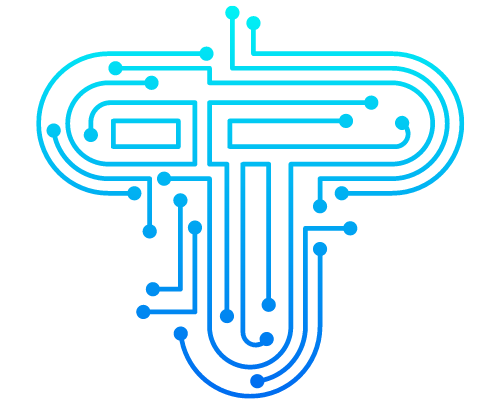In a time where mechanical headways are changing practically every part of our lives, the convergence of innovation and morals has never been more pivotal. From man-made consciousness (computer based intelligence) and AI to information protection and network safety, the moral ramifications of innovation are intricate and complex. As we proceed to enhance and incorporate new advances into our everyday schedules, it becomes basic to address these moral worries to guarantee that progress lines up with our common qualities and advances the benefit of everyone.

The Moral Scene of Innovation
At the core of tech morals is the topic of what arising advances mean for people and society. Moral contemplations frequently spin around a few key regions:
1. Privacy and Information Protection: In the computerized age, individual information is a significant item. Organizations gather immense measures of data through web-based exercises, online entertainment, and different advanced collaborations. The moral predicament emerges in how this information is gathered, utilized, and secured. Information breaks and abuse can prompt critical mischief, making it fundamental for associations to carry out powerful information security gauges and be straightforward about their information rehearses. Moral rules and guidelines, like the Overall Information Security Guideline (GDPR) in Europe, expect to defend individual protection and guarantee that information assortment rehearses regard client assent.
2. Artificial Knowledge and Bias: artificial intelligence frameworks are progressively used to pursue choices that influence individuals’ lives, from employing practices to policing. Be that as it may, these frameworks can sustain and try and intensify existing inclinations while perhaps not painstakingly planned and observed. Moral simulated intelligence advancement requires thorough testing for predispositions, straightforwardness in calculations, and responsibility for choices made via computerized frameworks. Engineers and associations should focus on decency and inclusivity to try not to build up cultural imbalances.
3. Autonomy and Accountability: As innovation turns out to be more independent, the subject of responsibility becomes basic. For instance, self-driving vehicles and mechanized dynamic frameworks raise issues about who is dependable when something turns out badly. Moral innovation sending includes clear responsibility structures and guaranteeing that human oversight is kept up with to relieve chances related with mechanical disappointments.
4. Employment and Financial Impact: The ascent of computerization and artificial intelligence has significant ramifications for the labor force. While these innovations can improve effectiveness and set out new open doors, they likewise present dangers of occupation uprooting and monetary disparity. Moral contemplations in this space incorporate tending to the effect on laborers, giving retraining potential open doors, and guaranteeing that the advantages of mechanical progressions are evenhandedly appropriated.
Exploring Moral Difficulties
Tending to these moral difficulties requires a complex methodology including different partners, including innovation engineers, policymakers, and the general population. Here are a few procedures to explore the complex moral scene of innovation:
1. Establishing Moral Guidelines: Associations and industry gatherings ought with create and comply to moral rules for innovation advancement and sending. These rules ought to resolve issues like information protection, algorithmic reasonableness, and straightforwardness. By following a reasonable arrangement of moral standards, organizations can guarantee that their innovations line up with cultural qualities and moderate likely damages.
2. Promoting Transparency: Straightforwardness is vital in building trust and responsibility in innovation. Organizations ought to be open about their information rehearses, algorithmic cycles, and dynamic rules. Giving clients clear data about how their information is utilized and the way that computerized frameworks work can assist with demystifying innovation and cultivate a feeling of safety.
3. Encouraging Public Discourse: Connecting with general society in conversations about innovation and morals is fundamental for guaranteeing that assorted viewpoints are thought of. Public talk can assist with recognizing moral worries, produce thoughts for arrangements, and consider associations responsible for their practices. Stages for open discourse and meeting can work with a more comprehensive way to deal with innovation improvement.
4. Regulating and Upholding Standards: States and administrative bodies assume an imperative part in setting and implementing guidelines for moral innovation use. Regulation and guidelines can give a structure to resolving moral issues and safeguarding people’s freedoms. Policymakers must remain informed about mechanical progressions and adjust guidelines to address arising difficulties.
A Source of inspiration
As innovation keeps on progressing at an uncommon speed, the requirement for moral thought turns out to be perpetually squeezing. Designers, organizations, and policymakers should cooperate to explore the moral difficulties and guarantee that innovation fills in as a power for good. By focusing on moral standards, encouraging straightforwardness, and taking part in significant exchange, we can tackle the force of innovation to improve our lives while maintaining our guiding principle and safeguarding our privileges.
All in all, the crossing point of innovation and morals is a dynamic and developing field that requests continuous consideration and activity. As we push ahead, it is fundamental to stay cautious and proactive in addressing moral worries to guarantee that mechanical advancement benefits society all in all and adds to an additional impartial and simply world.
